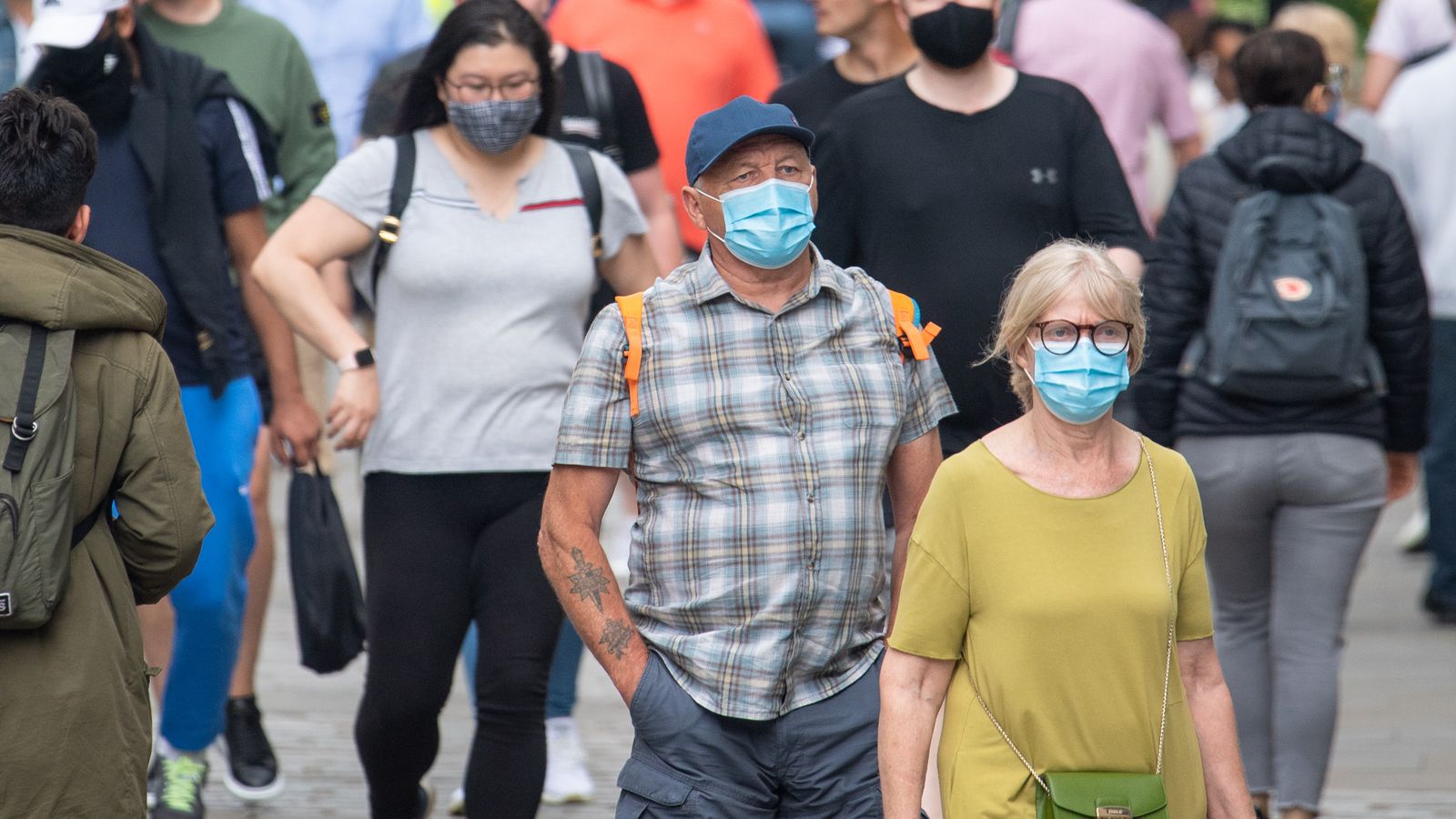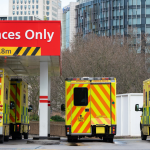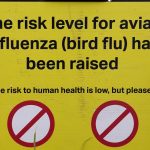Flu and other common cold viruses that have been suppressed by lockdowns are “bouncing back” and “becoming quite aggressive”, a leading expert has warned.
Professor Peter Openshaw, a virus expert at Imperial College London, said it is “very, very important that people do take the flu vaccine if they are offered it”.
Live COVID updates from the UK and around the world
It comes after Dr Jenny Harries, chief executive of the UK Health Security Agency (UKHSA), warned evidence showed that those who catch both COVID-19 and the flu are twice as likely to die.
Speaking to Sky News on Monday, Prof Openshaw warned that vaccinations are one of the main ways people can lessen the impact of influenza.
He said: “We’re all very concerned that influenza and other common cold viruses have been rather suppressed by this prolonged period of lockdown with COVID.
COVID-19: AstraZeneca antibody injection able to prevent and treat coronavirus, latest study shows
COVID news live: UK government refuses to comment on claims Russia stole Oxford vaccine blueprint
COVID-19: Sydney reopens to vaccinated people after being in lockdown for more than 100 days
“We’re seeing they are bouncing back and becoming quite aggressive so I think anything we can try to do to lessen the impact of flu is very important and vaccination is the main one.
“It is a well-proven and safe way to protect yourself against influenza.”
Asked if children should be given flu vaccinations, Prof Openshaw said: “If you’re offered the flu jab whatever your age you should take it.”
Follow the Daily podcast on Apple Podcasts, Google Podcasts, Spotify, Spreaker
He said that children are currently able to get the flu vaccination via a nasal spray.
Flu vaccines for children can help protect both them and the “more vulnerable people in their households”, like their grandparents, who may not respond very well to the flu vaccine themselves, Prof Openshaw added.
The option of a nasal spray is not yet available with older adults because it does not work as effectively due to high levels of immunity against flu already, he said.
Please use Chrome browser for a more accessible video player
Asked about pregnant women currently making up about 20% of serious COVID cases, he said it was “devastating” before urging them to take up the vaccine.
“The complications of COVID during pregnancy not only for the woman herself but also for her child are very severe,” he said.
“We are only just now appreciating just how severe COVID can be and being vaccinated again, is safe and highly effective in pregnancy.”
Dr David Lloyd, a GP based in north London, told Sky News that there had initially been “mixed messages” coming from the NHS over whether pregnant women should be vaccinated.
But he said: “We really must get these pregnant women vaccinated. It is so safe and so important.”
“ITUs are full of pregnant women with COVID so it’s a very dangerous time,” he said, before adding that every year intensive care units also see pregnant women admitted with flu.
“It looks like the combination of flu and COVID together is a really deadly combination,” Dr Lloyd said before urging anyone who knows a pregnant woman to encourage them to get vaccinated for both flu and COVID.
On Sunday, Dr Harries told Sky’s Trevor Phillips that what is different this year is that COVID and flu are co-circulating – which increases the risk of serious illness and death.
Asked how worried the public should be about flu this winter, she said: “We should be worried about flu each winter. I think people still don’t realise it can be a fatal disease. Recent studies suggest that about 25% of us don’t actually understand that. On average, over the last five years, about 11,000 people have died with flu-related conditions.
“But I think the important thing about this winter is, we are likely to see flu, for the first time in any real numbers, co-circulating with COVID.”
She added: “So the risks of catching both together still remain. And if you do that, then early evidence suggests that you are twice as likely to die from having two together, than just having COVID alone.”






















